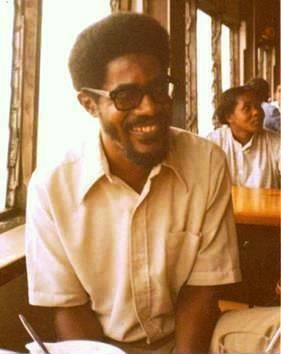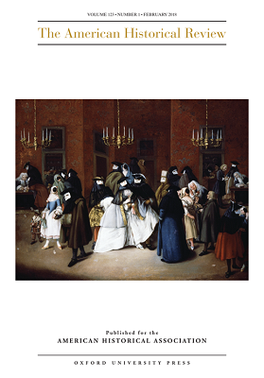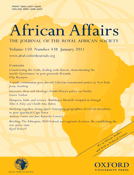Critical psychology is a perspective on psychology that draws extensively on critical theory. Critical psychology challenges the assumptions, theories and methods of mainstream psychology and attempts to apply psychological understandings in different ways, often looking towards social change as a means of preventing and treating psychopathology.
Historiography is the study of the methods used by historians in developing history as an academic discipline, and by extension, the term historiography is any body of historical work on a particular subject. The historiography of a specific topic covers how historians have studied that topic by using particular sources, techniques of research, and theoretical approaches to the interpretation of documentary sources. Scholars discuss historiography by topic — the historiography of the United Kingdom, of WWII, of the pre-Columbian Americas, of early Islam, and of China — and different approaches to the work and the genres of history, such as political history and social history. Beginning in the nineteenth century, the development of academic history produced a great corpus of historiographic literature. The extent to which historians are influenced by their own groups and loyalties — such as to their nation state — remains a debated question.
Social history, often called "history from below", is a field of history that looks at the lived experience of the past. Historians who write social history are called social historians. Social history came to prominence in the 1960s, with some arguing that its origins lie over a century earlier.

Walter Anthony Rodney was a Guyanese historian, political activist and academic. His notable works include How Europe Underdeveloped Africa, first published in 1972. Rodney was assassinated in Georgetown, Guyana, in 1980.

The historiography of the French Revolution stretches back over two hundred years.

Black studies or Africana studies, is an interdisciplinary academic field that primarily focuses on the study of the history, culture, and politics of the peoples of the African diaspora and Africa. The field includes scholars of African-American, Afro-Canadian, Afro-Caribbean, Afro-Latino, Afro-European, Afro-Asian, African Australian, and African literature, history, politics, and religion as well as those from disciplines, such as sociology, anthropology, cultural studies, psychology, education, and many other disciplines within the humanities and social sciences. The field also uses various types of research methods.
John Henrik Clarke was an African-American historian, professor, prominent Afrocentrist, and pioneer in the creation of Pan-African and Africana studies and professional institutions in academia starting in the late 1960s.

Molefi Kete Asante is an American professor and philosopher. He is a leading figure in the fields of African-American studies, African studies, and communication studies. He is currently a professor in the Department of Africology at Temple University, where he founded the PhD program in African-American Studies. He is president of the Molefi Kete Asante Institute for Afrocentric Studies.
Kishori Saran Lal (1920–2002), better known as K. S. Lal, was an Indian historian. He is the author of several works, mainly on the medieval history of India.
The Association for the Study of African American Life and History (ASALH) is a learned society dedicated to the study and appreciation of African-American History. The association was founded in Chicago on September 9, 1915, during the National Half Century Exposition and Lincoln Jubilee, as the Association for the Study of Negro Life and History (ASNLH) by Carter G. Woodson, William B. Hartgrove, George Cleveland Hall, Alexander L. Jackson, and James E. Stamps, and incorporated in Washington, D.C., on October 2, 1915. The association is based in Washington, D.C. In 1973, ASNLH was renamed the Association for the Study of Afro-American Life and History.
The South African Students' Organisation (SASO) was a body of black South African university students who resisted apartheid through non-violent political action. The organisation was formed in 1969 under the leadership of Steve Biko and Barney Pityana and made vital contributions to the ideology and political leadership of the Black Consciousness Movement. It was banned by the South African government in October 1977, as part of the repressive state response to the Soweto uprising.

The American Historical Review is a quarterly academic history journal published by Oxford University Press on behalf of the American Historical Association, for which it is its official publication. It targets readers interested in all periods and facets of history and has often been described as the premier journal of American history in the world.

The University of Texas Press is a university press that is part of the University of Texas at Austin. Established in 1950, the Press publishes scholarly books and journals in several areas, including Latin American studies, Texana, anthropology, U.S. Latino studies, Native American studies, African American studies, film & media studies, classics and the ancient Near East, Middle East studies, natural history, art, and architecture. The Press also publishes trade books and journals relating to their major subject areas.
The Journal of African American History, formerly The Journal of Negro History (1916–2001), is a quarterly academic journal covering African-American life and history. It was founded in 1916 by Carter G. Woodson. The journal is owned and overseen by the Association for the Study of African American Life and History (ASALH) and was established in 1916 by Woodson and Jesse E. Moorland. The journal publishes original scholarly articles on all aspects of the African-American experience. The journal annually publishes more than sixty reviews of recently published books in the fields of African and African-American life and history. As of 2018, the Journal is published by the University of Chicago Press on behalf of the ASALH.
John Donnelly Fage was a British historian who was among the first academics to specialise in African history, especially of the pre-colonial period, in the United Kingdom and West Africa. He published a number of influential studies on West African history including Introduction to the History of West Africa (1955). He subsequently co-founded the Journal of African History, the first specialist academic journal in the field, with Roland Oliver in 1960.

African Affairs is a peer-reviewed academic journal published quarterly by Oxford University Press on behalf of the London-based Royal African Society. The journal covers any Africa-related topic: political, social, economic, environmental and historical. Each issue also includes a section of book reviews.
The African Studies Review is a peer-reviewed academic journal covering African studies. The journal also publishes book and film reviews.
The following is a timeline of the history of the city of Mombasa, Coast Province, Kenya.
Comparative Studies of South Asia, Africa and the Middle East is a triannual peer-reviewed academic journal covering Comparative Studies on Africa, the Middle East, and South Asia. It provides a "critical and comparative analyses of the histories, cultural productions, social and gender relations, politics, and economies" of these regions. It is published by the Duke University Press, and since 2012, edited at Columbia University.
Martin A. Klein is an Africanist and an emeritus professor in the History Department at the University of Toronto specialising in the Atlantic slave trade, and francophone West Africa: Senegal, Guinea, and Mali. He obtained a Bachelor of Arts degree in journalism at Northwestern University (1951-1955) and a Master of Arts and Doctor of Philosophy in history at the University of Chicago (1957-1964). Klein worked as an assistant professor at the University of California Berkeley from 1965 till 1970, later teaching African history at the University of Toronto as an associate professor and later full professor from 1970 until his retirement in 1999. As a Fulbright Fellow, Klein taught for a year at Lovanium University in Kinshasa.





